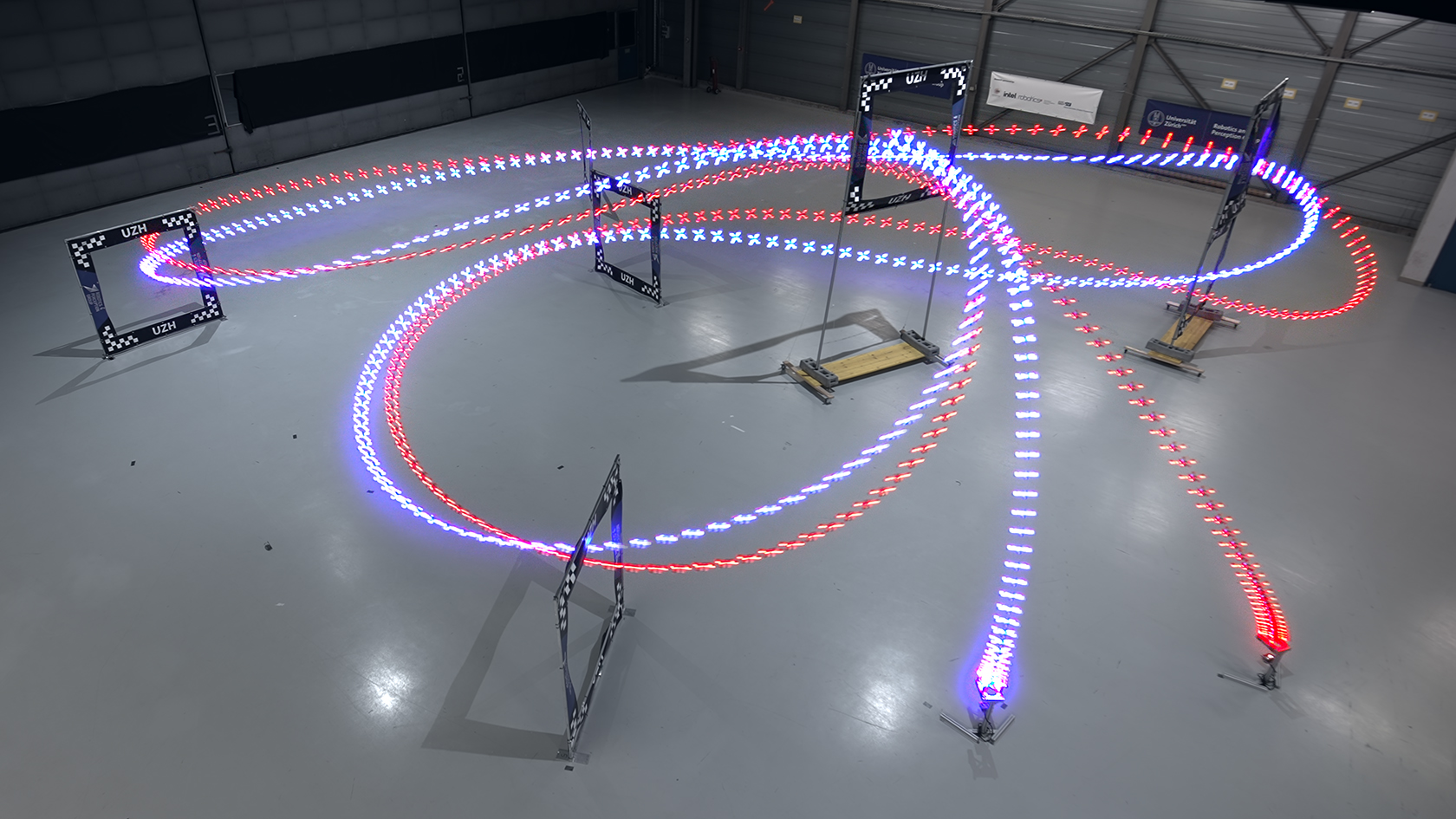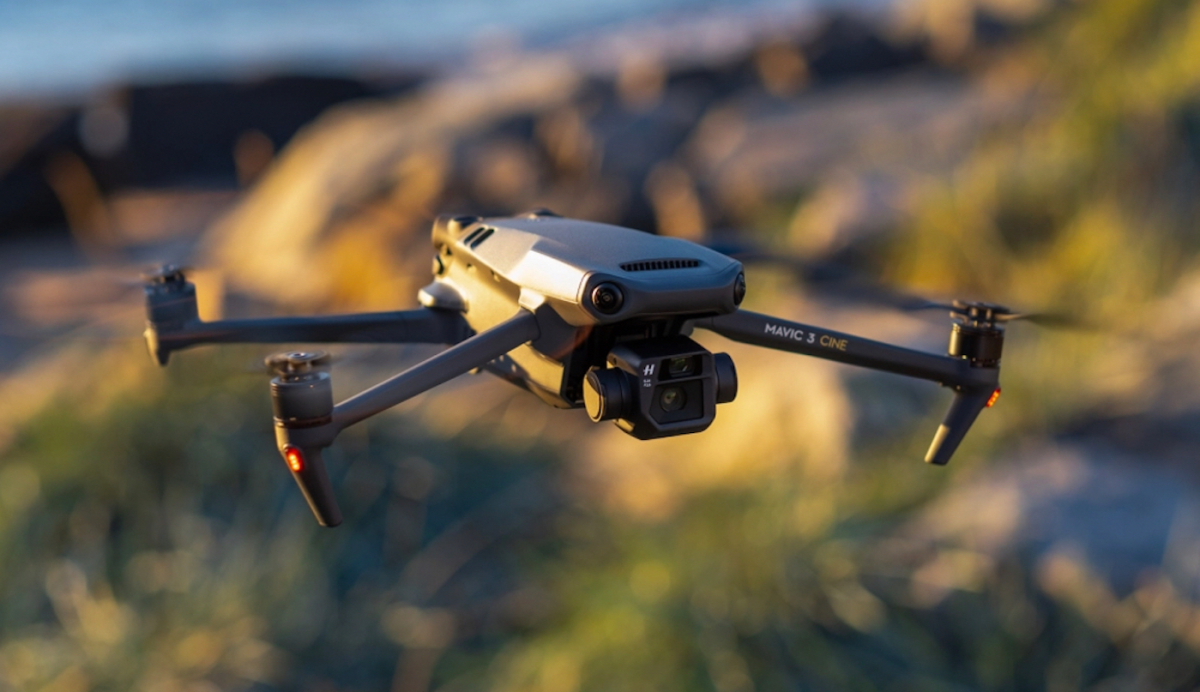
University of Zurich AI drone beats humans for the first time

The “Swift” drone developed at the University of Zurich has outshone its human competitors in a physical drone race in Dübendorf for the first time.
Co-developer Leonard Bauersfeld said this is a milestone because the AI-trained autonomous drone managed the fastest lap overall, half a second ahead of the best time of a human pilot.
The competition organised by the university’s robotics department was a fair contest between man and machine, co-developer Leonard Bauersfeld told Swiss public television SRFExternal link. For the first time, an autonomous robot defeated a human in physical competition in the real world.
+ Scientists develop heat-resistant drone to help fight fires
The drone did not rely on a computer centre on the ground or navigation systems such as GPS but only used sensor technology with a camera on board. “All the calculations run in real time on the drone, on a smartphone-sized computer that flies along,” Bauersfeld explained.
Data mix of simulation and real world
However, the artificial intelligence of the drone was mainly trained in simulation, based on an image of the racetrack and the track layout. After a month of simulated flight time, which corresponds to around an hour of computing time, the drone was ready to take part in the competition.
+Drones save 6,000 young deer from mowers
Then it was off to the real racetrack to measure effects that cannot be simulated – such as turbulence and lighting conditions. Based on all this data, they then trained in the simulation for another 20 to 30 minutes before the competition began.
Future vision: more agility and fast flying
Bauersfeld sees the potential applications of the small and agile drones primarily in camera-based flights for inspections of bridges or buildings in danger of collapsing or burning, for example.
He also sees possible applications in the area of ships, which is currently being investigated by a new EU project. “Flying autonomous drones through such situations would indeed be a great vision for the future. That’s what our group in Zurich is researching.”
Drones: opportunity and danger
As far as the military use of drones is concerned, Bauersfeld admits that autonomous drones represent both an opportunity and a danger. Agile navigation in confined buildings without connection to the outside world, however, is a very different field of application than using drones for surveillance or as a weapon against slow and stationary targets on the ground. “I am convinced that the benefits of our drone research in civilian terms outweigh the risks.”
This news story has been written and carefully fact-checked by an external editorial team. At SWI swissinfo.ch we select the most relevant news for an international audience and use automatic translation tools such as DeepL to translate them into English. Providing you with automatically translated news gives us the time to write more in-depth articles. You can find them here.
If you want to know more about how we work, have a look here, and if you have feedback on this news story please write to english@swissinfo.ch.

In compliance with the JTI standards
More: SWI swissinfo.ch certified by the Journalism Trust Initiative














































You can find an overview of ongoing debates with our journalists here . Please join us!
If you want to start a conversation about a topic raised in this article or want to report factual errors, email us at english@swissinfo.ch.